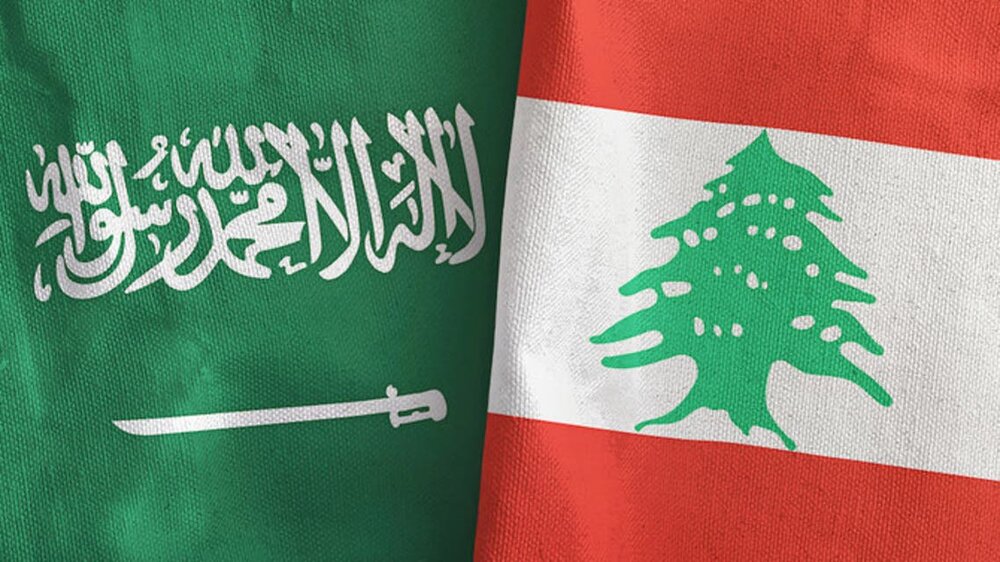
TEHRAN – Saudi Arabia, Bahrain, and Kuwait have decided to expel the ambassadors of Lebanon in the latest crisis in Beirut’s relations with some countries of the Persian Gulf Cooperation Council.
Riyadh announced on Friday that is it was giving Lebanon’s ambassador 48 hours to leave the country. It also recalled its ambassador to Lebanon.
“The government of the Kingdom of Saudi Arabia announces recalling its ambassador to Lebanon for consultations and requests the departure of the Lebanese ambassador to the Kingdom within the next (48) hours,” the Saudi foreign ministry said in a statement.
Furthermore, Riyadh also stopped all commercial ties with Lebanon in what appeared a purposeful design to push Lebanon into a deeper economic crisis. “Due to the importance of taking all necessary measures to protect the security of the kingdom and its people, it has been decided to stop all Lebanese imports into the Kingdom,” the Saudi statement noted.
Kuwait and Bahrain also followed suit. Kuwait announced Saturday that it was recalling its ambassador to Lebanon and giving the Lebanese ambassador to Kuwait 48 hours to leave the country. A Kuwaiti foreign ministry statement said the decision was made in solidarity with Saudi Arabia.
Bahrain also did the same thing. “The Ministry of Foreign Affairs announces that it has asked the Ambassador of the Lebanese Republic to the Kingdom of Bahrain to leave the Kingdom within the next 48 hours, against the background of a series of unacceptable and offensive statements issued by Lebanese officials in recent times,” Bahrain’s foreign ministry said in a statement.
The episode began after a video statement from a popular television anchor-turned-politician sparked a heated debate on social media platforms in the Arab world. The video featured George Kordahi inveighing against the Saudi-Emirati war in Yemen a few weeks before becoming Lebanon’s information minister.
Kordahi made controversial statements accusing Saudi Arabia and the UAE of attacking Yemen and said that the Ansarullah movement is defending their country. The remarks quickly went viral on social media given the fact that Kordahi had worked for Saudi and Emirati television networks for a long time.
To lessen the effect of his remarks, the Lebanese minister stated that the interview was old and was conducted on August 5 and that what he said about the futility of the Yemeni war “was made out of conviction, not in defense of Yemen, but also out of love for Saudi Arabia and the UAE.”
The Lebanese government of Najib Mikati tried to avert the crisis with no success. Mikati said Kordahi’s remarks have nothing to do with government policy. Kordahi himself sought to defuse tensions. “Whoever wants to characterize my stance as one against Saudi Arabia, that accusation is rejected. I have never attacked or insulted Saudi Arabia,” he said, adding: “As for the UAE, I consider it my second home.”
Some believe that the Saudi moves against Lebanon were a long time coming and that Kordahi’s statements only provided the Saudis an excuse to move ahead with their punitive measures against Lebanon, knowing the crisis-stricken country can no longer bear more economic pressure.
Saudi Arabia has turned its back on Lebanon ever since at least 2018 when they mounted pressure on then Prime Minister Saad Hariri to undermine Hezbollah’s sway. But they failed to weaken Hezbollah, they started imposing harsh economic restrictions on Lebanon while refraining from giving any financial aid.
Since then, pundits believe, the Saudis and their allies are pursuing a “freefall for all” project. In other words, they seek to bring the Lebanese state to total collapse in a bid to undermine Hezbollah. The Kordahi episode, therefore, is only one step in that direction.

No comments:
Post a Comment